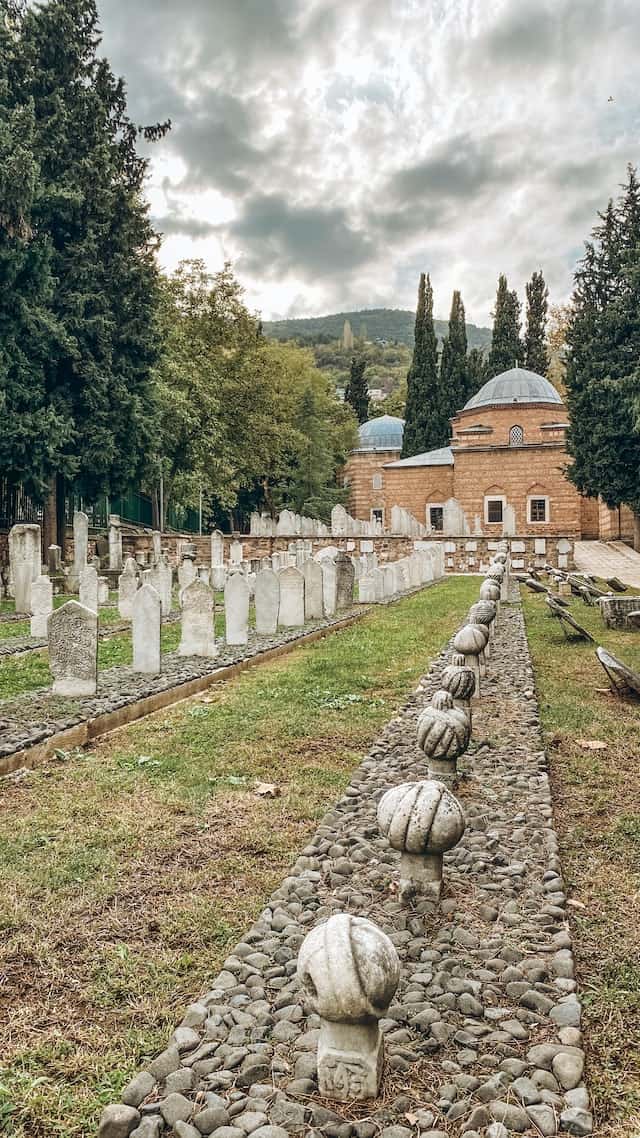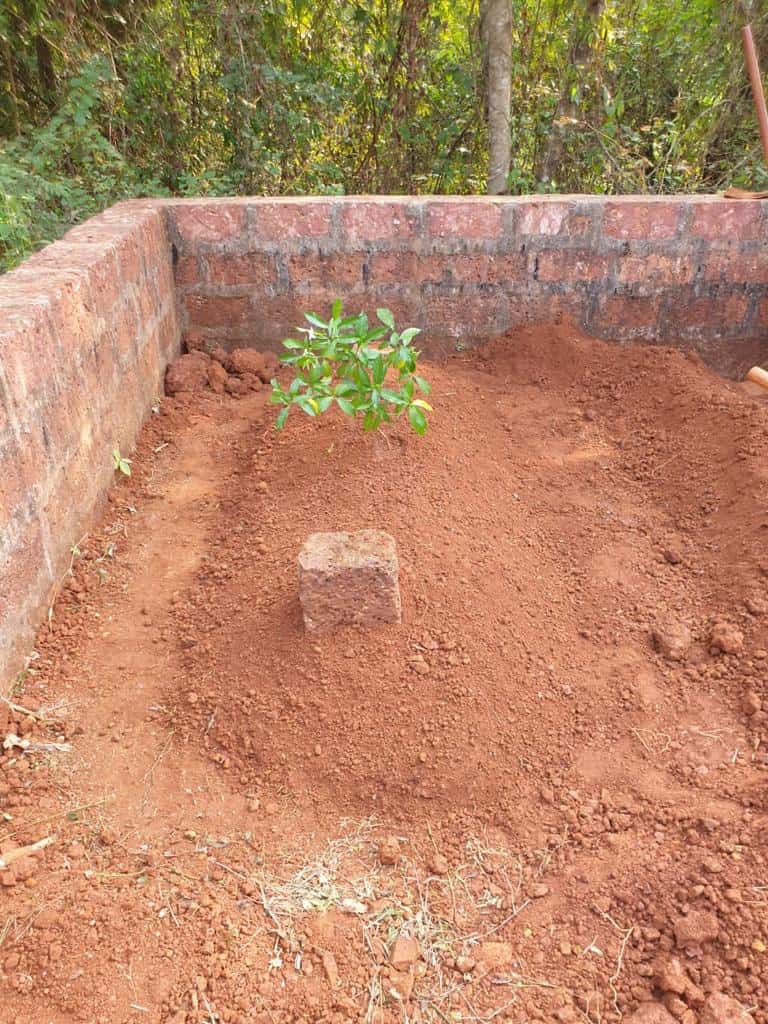Is it permissible to have a gravestone?


In general it is permissible to have a small structure constructed over a grave and have a gravestone to mark it. The structure should be humble and not higher than a handspan.
Graves
From a shariah point of view, you should not construct a large structure over a grave. It should be low / close to the ground. Jabir (may Allah be pleased with him) said:
The Messenger of Allah (ﷺ) forbade that the graves should be plastered (made into permanent structures), used as sitting places (for the people) or building over them. [Muslim]
The sunnah is that the structure built over the grave should not be more than a handspan in height. The grave should not be a grand structure. The Prophet’s own grave (peace be upon him) had a low ‘hump’.
Sufyan at-Tammar said he saw the grave of the Prophet humped. [Bukhari]
Jabir ibn ‘Abd-Allah (may Allah be pleased with him) said that the Prophet (peace be upon him) made a (lahd) niche in the side of the grave, and bricks were erected on it, and his grave was raised from the ground about a handspan. [Sunan Al-Bayhaqi]
Tirmidhi said that scholars disapprove of raising the grave more than necessary and that it is raised to indicate that it is a grave, and so people will not step or sit on it.
Imam Nawawi also commented that the sunnah was not to build a structure higher than a handspan. The scholars were strict about this because it was a jahiliyya practice to glorify and even worship tombs.
Abu Hurayrah (may Allah be pleased with him) reported:
The Prophet, peace be upon him, said: ‘May Allah destroy the Jews, because they used the graves of their prophets as places of worship. (Bukhari and Muslim)
Gravestone
It is permissible to have a gravestone, that is not extravagant to mark the grave so that it can be recognised. This is based on a hadith narrated Anas that the Prophet (peace be upon him) “placed a rock over ‘Uthman ibn Maz’eun’s grave so that it could be recognized.” [Ibn Majah]
Name on the gravestone
What name should be out on a woman’s grave? In some cultures they put both her maiden name and her husband’s surname. Whichever identifies her.
It is not permissible to sit on a grave, or lean on it, or walk over it. ‘Amr bin Hazm narrated that the Prophet (peace be upon him) saw me leaning on a grave, so he said:
‘Do not harm the dweller in this grave or do not harm him.’ (Ahmad)
Abu Hurayrah (may Allah be pleased with him) reported that the Prophet (peace be upon him) said:
It is better for you to sit on a glowing coal that burns through your clothes to your skin than to sit on a grave. (Muslim)
Some scholars say it is better to avoid inscribing verses of the Quran on the gravestone in case the gravestone deteriorates and this would be disrespectful if it falls on the ground.
In the Middle East it is quite common that people inscribe the ayahs from Surat Al Fajr:
يَـٰٓأَيَّتُهَا ٱلنَّفْسُ ٱلْمُطْمَئِنَّةُ ٢٧
ٱرْجِعِىٓ إِلَىٰ رَبِّكِ رَاضِيَةًۭ مَّرْضِيَّةًۭ ٢٨
˹Allah will say to the righteous,˺ “O tranquil soul!
Return to your Lord, well pleased ˹with Him˺ and well pleasing ˹to Him˺. (89:28)
Shaykh Haytham Tamim
Free Booklet on Spiritual and Practical Preparation for Death
Free Booklet on Birth and Death Rites in Islam
What duas can you recite for a good death?
- The truth is more powerful than lies
- Does a bride’s wali have to be Muslim?
- Is is permissible to lead a salah split over different rooms?
- Global IT outage. When systems go down…
- The concept of worship. What are ibadah and ihsan – and how do they lead to self development?
Recommended Posts

Does a bride’s wali have to be Muslim?
July 25, 2024

Can I remove my hijab for a scan?
June 26, 2024

